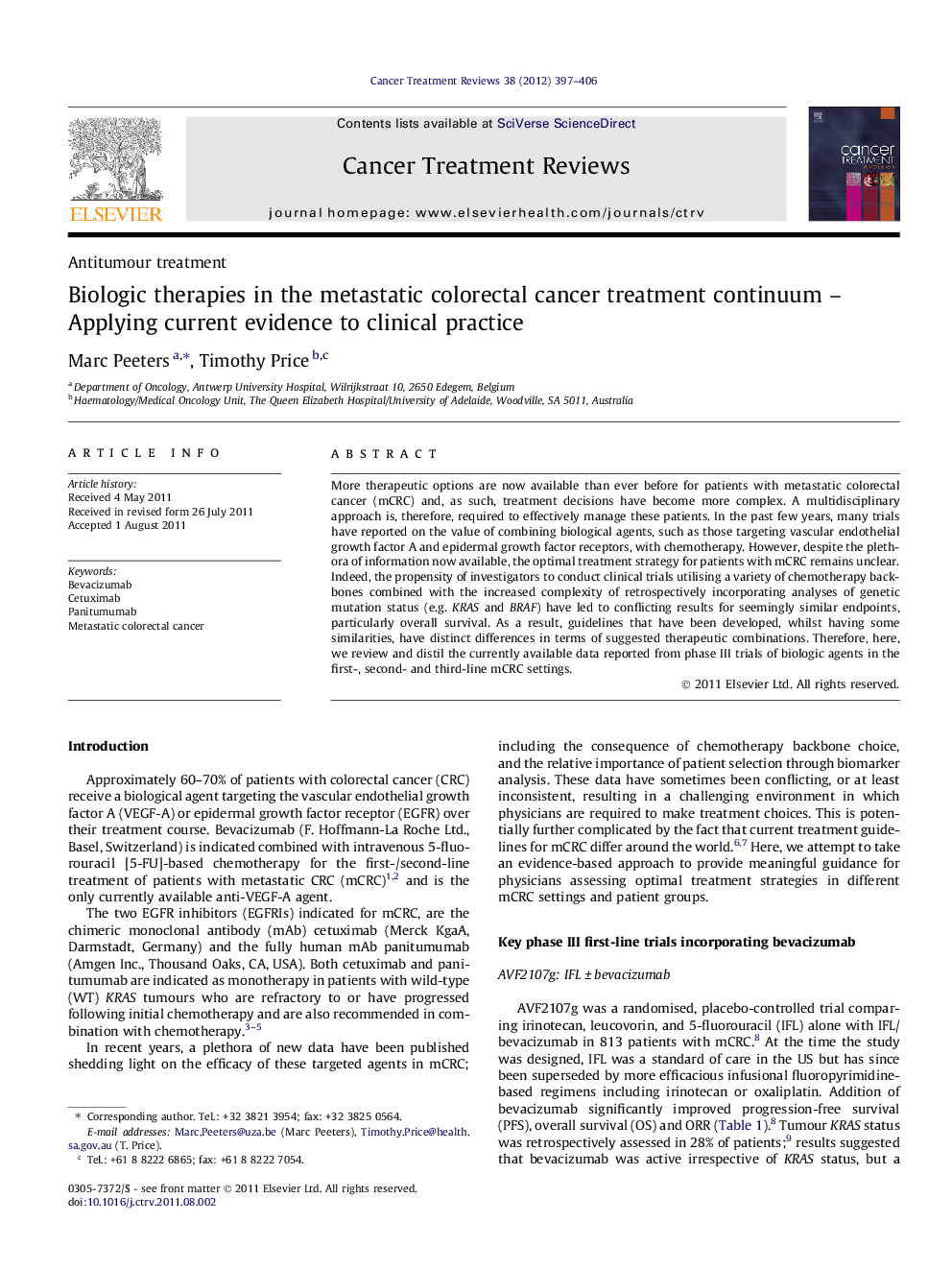| Article ID | Journal | Published Year | Pages | File Type |
|---|---|---|---|---|
| 3979990 | Cancer Treatment Reviews | 2012 | 10 Pages |
More therapeutic options are now available than ever before for patients with metastatic colorectal cancer (mCRC) and, as such, treatment decisions have become more complex. A multidisciplinary approach is, therefore, required to effectively manage these patients. In the past few years, many trials have reported on the value of combining biological agents, such as those targeting vascular endothelial growth factor A and epidermal growth factor receptors, with chemotherapy. However, despite the plethora of information now available, the optimal treatment strategy for patients with mCRC remains unclear. Indeed, the propensity of investigators to conduct clinical trials utilising a variety of chemotherapy backbones combined with the increased complexity of retrospectively incorporating analyses of genetic mutation status (e.g. KRAS and BRAF) have led to conflicting results for seemingly similar endpoints, particularly overall survival. As a result, guidelines that have been developed, whilst having some similarities, have distinct differences in terms of suggested therapeutic combinations. Therefore, here, we review and distil the currently available data reported from phase III trials of biologic agents in the first-, second- and third-line mCRC settings.
